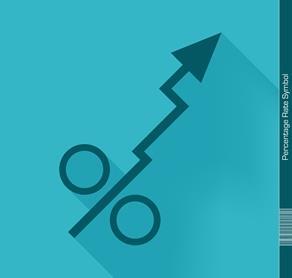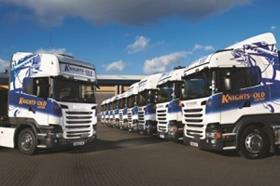
As hauliers face yet another rise this summer in insurance premium tax, MT looks at what action industry can take to lessen its impact
Hauliers have not taken kindly to the government’s decision to once again hike the tax on insurance premiums.
The tax rise, announced by Chancellor of the Exchequer Philip Hammond in the Autumn Statement, sees insurance premium tax (IPT) increase from 10% to 12% in June 2017.
This follows an earlier hike to the tax which saw rates rise from 6% to 9.5% in November 2015 and to 10% in the 2016 Budget in March this year.
Paul Abbott, Knights of Old group director, condemns the rise. “This is no more than a stealth tax and it hits our industry hard,” he tells MT. “It’s not like we have a choice. We have to have insurance and because of our larger risk profile, we pay bigger premiums and therefore more tax. We are being penalised for being responsible businesses,” he said.
He added: “This is a double whammy for the industry. We, along with many other firms, are already suffering from higher premiums, resulting from the HGV driver shortage issue, which has forced operators to take on less experienced and younger drivers. There ,are also the endless spurious claims against HGV drivers. It’s daylight robbery.”
RHA policy director Jack Semple says hauliers will struggle to absorb this latest increase. “This latest rise is part of a three stage increase which will see a 100% increase in insurance premium tax in less than two years.
“It’s a significant increase but one which hauliers will find very difficult to pass on to their customers and as such is very unwelcome. Operators will be forced instead to try and get a much keener deal on their insurance and to do whatever they can to reduce their premiums,” Semple said.
Worse still, tax experts are predicting further hikes to IPT.
PricewaterhouseCoopers tax partner Benjamin Flockton warns that insurers “have been predicting a trend of IPT ultimately aligning with the UK’s 20% VAT rate".
Carl Chapman at consultancy Barnett Waddingham echoed this view. He said: “The average rate of insurance premium tax in Europe is between 15% and 20% and I fully expect us to creep up towards these levels over the coming years.”

So what can hauliers do to lessen the impact of these IPT hikes?
Steve Green, director at Anthony Jones Insurance Brokers, says hauliers need to become more savvy when buying insurance. “Hauliers need to make conscious buying decisions when it comes to insurance and understand how their premiums are made up.
"Make sure your broker isn’t just relying on mathematical models which apply across a broad range and that they have the influence to say to the insurer that this customer is different and warrants another look,” he said.
Semple also advised operators to try and get a keener deal on their insurance “and to do whatever they can to reduce their premiums”.
Abbott said that is hardly an option since many operators are already doing that, with Knights of Old spending “hundreds of thousands of pounds already on training and equipment” to cut premiums.
He argued that the government should make IPT subject to the same rules as VAT so that essential users, such as hauliers, can claim back some or all of the tax and he is frustrated that the industry’s trade associations are not lobbying harder on the issue.
Abbott believes that the RHA and FTA’s campaign to get the government to cut fuel duty, laudable as it is, has meant that the issue of rising insurance premium tax has been put on the back burner.
“We would certainly have been happier with a rise in fuel duty as most organisation have fuel escalator mechanisms in place to manage this but with Insurance , this one is a far harder one to negotiate – as is the increased cost of training and employing people [in order to reduce premiums],” Abbott said.
Green takes a similar view. “As an industry, hauliers should start lobbying quite seriously for a reduction in this tax. I really don’t understand why the trade associations have been so passive about what is a very substantial rise which shows no sign of slowing.
“It is grossly unfair that businesses that want to insure their drivers and fleet are taxed on prudent business management. This is an industry that is improving road safety significantly by insuring their fleets, training drivers and by using telematics so why are they paying the same tax as someone who doesn’t do that? I am amazed the industry hasn’t lobbied harder on this,” he said.
Both the RHA’s and FTA’s responses to the latest IPT increase have been muted.
RHA chief Richard Burnett called the 2% hike “a disappointment” but added that it was “a disappointment that will, to an extent, be offset by the news that fuel duty, held at 57.95ppl is to be frozen for the seventh year in a row”.
FTA makes no bones about where its focus lies. It’s a case of picking the right battle, says deputy chief executive James Hookham.
He told Motortransport.co.uk: “Obviously the rise in IPT will increase operators’ costs but in comparison to the price of fuel, this has far less of an impact on operators running costs and so we would like to focus on getting the government to bring fuel duty down to 3p a litre as this would have a big impact.”
RHA’s Jack Semple says that since the government chose to ignore the wishes of millions of consumers on the issue of IPT it is “highly unlikely to change its view on this” when it comes to the haulage industry.
Nonetheless, he adds, “RHA will be raising this issue with Treasury this month, and will emphasise the fact that, as this is an additional cost that is not easily absorbed by hauliers, it will affect the rates they charge their customers”.
In the meantime hauliers are left with the problem of absorbing yet another additional cost to their business.













